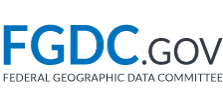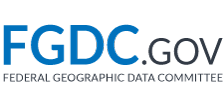Part B
LEAD FEDERAL AGENCY REPORT (Agencies With Lead for NSDI Theme From Circular A-16, Appendix E) (Please provide a separate report form each theme for which you have the lead)
1. Data Theme Name:
Cultural and Demographic Data
2. What are the Budget Programs this data supports? (activities, sub activities):
Over 170 billion dollars a year is allocated through a myriad of federal programs using formula that are based on socio-demographic characteristics.
Very Briefly Describe All Applicable Items:
3. Uses of Data: What are the end uses of this data? (benefits to customers, how it supports lead and other Agency missions, etc.)
Cultural and demographic data describe the characteristics of the people, the nature of the structures in which they live and work, the economic and other activities they pursue, the facilities they use to support their health, recreational and other needs, the environmental consequences of their presence, and the boundaries, names and numeric codes of geographic entities used to report the information collected. The data is used by governmental entities at all levels, the private sector, academia, and so forth in order to create profiles of the American people, economy, and life style.
4. Charter/Plan: Do you have a current charter or plan for collection? Should it be updated?
While the U.S. Census Bureau conducts the constitutionally mandated decennial census along with other surveys and censuses of both people and business in the United States, they are not the only agency to collect such information.
5. Metadata: What is the status of metadata? Is it discoverable and served through the NSDI Clearinghouse? What percentage of this theme's data has metadata? Is a Clearinghouse node established?
The U.S. Census Bureau has metadata associated with its public products, including those with a governmental unit boundary and/or address data content layer, (e.g., TIGER/Line Files) and a node on the FGDC clearinghouse for data dissemination is under development. Other agencies are assumed to have equal or better metadata.
6. Standards: What is the status of this theme's data standard?
There are currently two standards being developed within this category
The Governmental Unit Data Content Standard will be presented for comment at the June 7, 2001 meeting of the Federal Geographic Data Committee's Subcommittee on Cultural and Demographic Data. The comments will be addressed and the standard will be submitted for passage and approval at a forthcoming 2001 FGDC Coordination Group that reviews the recommendation of the SWG and approves standard for public review. meeting. Public review will occur during the Spring of 2002 with final FGDC Steering Committee endorsement in the Fall of 2002.
The Address Data Content Standard public review closed on June 22, 2001. Comments will be reviewed and adjudicated and the Standard will than be presented to the Federal Geographic Data Committee's Coordination Group for public review. The FGDC Secretariat announces and coordinates a public review of the proposed standard. Testing and validation of the standard take place at this time.
7. Progress: List FY 2000/2001 Activities/Progress to Date (quantify where possible)
The Address Data Content Standard has moved into the public review stage and should be a FGDC endorsed standard by the beginning of 2001. The final draft of the Governmental Units Boundary Data Content Standard is complete and will be presented to the Standards Working Group in June, 2001 and to the FGDC's Coordination Group for public review shortly thereafter.
8. Leadership: Describe your active leadership role with others (private, local, State, Federal) who collect and use this data.
As part of the normal FGDC standards development process, input on the development of both standards has been actively sought from the local, state, federal, private, and academic organizations.
9. Collaborative Partnerships: How many major partnerships with others do you have or this theme (list if desired).
This depends upon the individual agency program.
10. Scope: Are you engaged in broad participation and International/global coordination?
The U.S. Census Bureau is an active participant in ISO/TC 211, the International Organization of Standardization Technical Committee 211, Geographic Information/Geomatics, where it served as editor for two of the standards and participates as technical experts on several others.
11. Policy: Do you have a policy in place for full and open access or data sharing?
For census data, the U.S. Census Bureau actively pursues numerous avenues to promote data dissemination of its products and information.
12. Are there areas or issues regarding lead responsibilities for spatial data themes that require attention, or lessons-learned that you would like to share with others? Please describe.
None.

